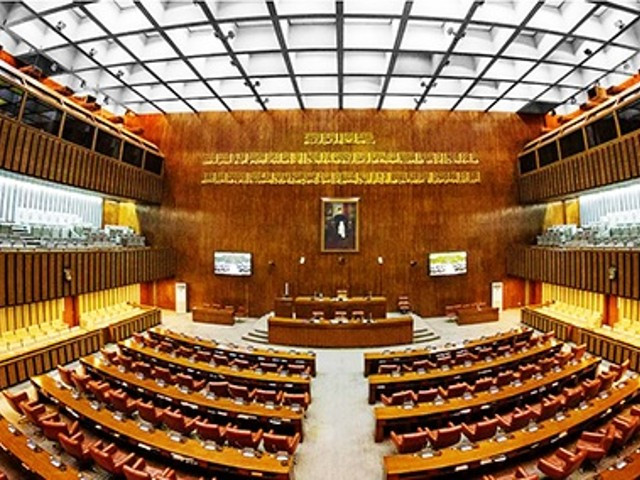
Amid opposition from the Pakistan Tehreek-e-Insaf (PTI) and the Jamiat Ulema-e-Islam-Fazl (JUI-F), the Senate Standing Committee on Law and Justice approved on Friday a bill to increase the number of Supreme Court judges from 17 to 25, including the chief justice of Pakistan.
The committee met here with Senator Farooq H Naek in the chair. Senator Abdul Qadir, who presented the bill in the upper house of parliament, highlighted the necessity, citing the country's growing population and escalating crime rates.
"Cases are dragging on for generations, yet the number of judges remains stuck at the levels of the 1990s," Senator Qadir argued. He also pointed to the increasing number of cases being filed in the Supreme Court.
During the committee meeting, lawmakers from the former ruling party and the JUI-F voiced strong opposition to the decision. PTI Senator Hamid Khan expressed serious concerns about the legislation, stating, "Such a method to appoint Supreme Court judges is an attack on judicial independence."
Highlighting regional comparisons, Hamid Khan stated, "India is six times larger than Pakistan but has 34 Supreme Court judges". However, he cautioned against expanding the bench, adding that it could worsen internal disputes.
"Delays in cases have also been exacerbated by the Supreme Court's internal conflicts," he said, adding that any proposal to increase the number of judges should involve the judiciary's input. "This increase is not necessary and could harm the judiciary," he warned.
Senator Kamran Murtaza pointed out vacant judicial seats in the high courts. "Before October 25, the Supreme Court's docket was nearly at a standstill. Now, over 30 cases are being heard daily," he said.
Hamid Khan asserted that the past governments had expanded the judiciary to exert control - a move he believed damaged the judicial independence. He referred to previous divisions in the apex court, a point echoed by Senator Murtaza.
Murtaza alleged that the government was trying to transform its majority into a minority. Senator Abdul Qadir countered his argument, saying: "The Supreme Court is now united; there are no factions."
According to the committee chairman, the bill stipulated that the Supreme Court would comprise one chief justice and 24 judges. Despite the push, Hamid Khan and Kamran Murtaza opposed any increase in the number of judges, warning of potential negative repercussions for the judiciary.
Senator Anusha Rehman raised financial concerns, questioning why the government covered utility bills for the higher judiciary members, while parliamentarians pay theirs.
"Why are judges who resign, still receiving pensions?" she asked. She also criticised judicial changes under the 26th Amendment, arguing they have harmed the judiciary.
JUI-F Senator Kamran Murtaza criticised the legislation, claiming that it aimed at appointing "favourite judges" to the Supreme Court. "Since October 25, judges have been working smoothly [ ] There is no need to increase the sanctioned strength," he argued.
On the other hand, Pakistan Peoples Party (PPP) Senator Shahadat Awan stressed the importance of raising the number of Supreme Court judges to at least 21. Law Minister Azam Nazeer Tarar also supported the legislation, proposing that the new bill be sent to the relevant committee for review.
The law minister backed Senator Qadir's points and highlighted that numerous cases involving capital punishment have been pending since 2015. "One person spent 34 years in jail due to a pending appeal before the top court," he noted.
It is worth mentioning that two retired judges - Justice (retd) Tariq Masood and Justice (retd) Mazhar Alam Miankhel - were appointed as ad hoc judges to the Supreme Court for one year in July to tackle the backlog of cases.

1730516134-0/Diddy--Lopez-(1)1730516134-0-405x300.webp)



1725885571-0/Tribune-Pic-(9)1725885571-0-165x106.webp)



1730525848-0/Copy-of-Untitled-(5)1730525848-0-270x192.webp)








COMMENTS
Comments are moderated and generally will be posted if they are on-topic and not abusive.
For more information, please see our Comments FAQ